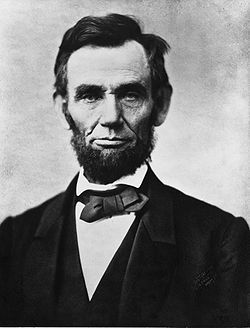“Punting the Pundits” is an Open Thread. It is a selection of editorials and opinions from around the news medium and the internet blogs. The intent is to provide a forum for your reactions and opinions, not just to the opinions presented, but to what ever you find important.
Thanks to ek hornbeck, click on the link and you can access all the past “Punting the Pundits”.
Glenn Ford: Occupy All the Harlems, to Save Ourselves from the Dictatorship of Wall Street
Power to the people!
Say it like you mean it, because most of us have not been acting in the spirit of All Power to the People for a very long time.
For decades, we have been acting under the illusion that we could empower Black people by sending Black elected officials to the city council and the state legislature – and finally putting one in the White House – only to find that their philosophy of politics was: All Power To Those Who Already Have Power.
All Power to the Banks, to the Real Estate Developers; All Power to the Plutocrats, and to the Pentagon. That’s what has become of our Black Power, in the hands of our Black elected officials.
All Power to a President who uses his power to send $16 trillion dollars to Wall Street – and not just banks on Wall Street, but to banks in France, and Great Britain, and Belgium and Switzerland.
But not dime to bail out Harlem, and all the Harlems of this country.
There comes a time of awakening. We are now in that time – although some Black folks are not yet awake. Our job is to wake our people up, so that we don’t sleep through this moment.
New York Times Editorial: The Next Fight Over Jobs
Republicans will probably try to block an extension of expiring jobless benefits, which are the first line of defense against further weakening of the economy.
The way the job market is going, it will never be robust enough to bring down the unemployment rate, now at 9 percent, or 13.9 million people. Monthly job growth has slowed to an average of just 90,000 new jobs a month over the past six months, a pace at which growth in the working-age population will always exceed the number of new jobs being created.
High unemployment and low job growth, which have plagued the economy all through the current “recovery,” hurt both consumer spending and economic growth. But don’t count on government to do the obvious and urgent thing – intervene to create jobs.
I never liked the term “The Great Recession,” because this is not an ordinary recession, not even a great one. It is a period of protracted deflation, where weak demand, declining incomes, and falling asset prices keep dragging the economy downward into a self-deepening sinkhole.
With the latest unemployment numbers, the evidence keeps accumulating that this will be a prolonged economic stagnation. The unemployment rate — stuck around 9 percent — is not as bad as that of the Great Depression, but in some respects the prognosis is equally grim.
Hadley Freeman: The Republican presidential candidates are farcically unelectable
Obama must have made a pact with the devil – how else to explain his good fortune?
When blues musician Robert Johnson famously if possibly not factually flogged his soul, he got in return superior guitar skills; when aged Joe Boyd did the same in the Faustian musical Damn Yankees, he was reborn as a dashing baseball player. As for Obama, just a few months ago he was being widely dismissed as a “one-term president”; now, while I can’t guarantee Obama will win the election next year (OK, I am partial to a Saturn-splattered turban, but my crystal ball recently cracked), I can say that his Republican rivals are fast becoming farcically unelectable. Some might argue that this is the inevitable result of a Republican party that has painted itself into a corner by focusing so much on social values and twisting its economic ones into such a knot that it claims to be a party for lower earners (it is, but only in the sense that it wants lower earners to pay high taxes so the rich don’t have to). But I say that only something truly satanic could conjure up what the GOP has vomited out this time round and, to prove it, I bring you the York Notes guide to the Republican candidates.
E. J. Dionne, Jr: The Politics of the Heavenly and Unheavenly
We have embarked on yet another presidential campaign in which religion will play an important role without any agreement over what the ground rules for that engagement should be.
If you think we’re talking past each other on jobs and budgets, consider the religious divide. One side says “separation of church and state” while the other speaks of “religion’s legitimate role in the public square.” Each camp then sees the question as closed and can get quite self-righteous in avoiding the other’s claims.
Anyone who enters this terrain should thus do so with fear and trembling. But a few things ought to be clear, and let’s start with this: The Mormon faith of Mitt Romney or Jon Huntsman should not be an issue in this campaign. Period.
Joe Conason: Bloomberg vs. Occupy Wall Street
Americans listen when Michael Bloomberg speaks, not only because he is the mayor of New York City, but because he is a self-made billionaire and a smart guy. People think Bloomberg knows a lot about business and investment, which he surely does. But he nevertheless sounds terribly misinformed sometimes, as he did the other day-when he complained that Occupy Wall Street is unfairly blaming the nation’s big bankers for the crash and recession, when the real culprits are Congress and the government-sponsored housing lenders, Fannie Mae and Freddie Mac.
“It was not the banks that created the mortgage crisis,” said the mayor. “It was, plain and simple, Congress, who forced everybody to go and give mortgages to people who were on the cusp. … But they were the ones who pushed Fannie and Freddie to make a bunch of loans that were imprudent, if you will. They were the ones that pushed the banks to loan to everybody.”


 Welcome to the Stars Hollow Health and Fitness weekly diary. It will publish on Saturday afternoon and be open for discussion about health related issues including diet, exercise, health and health care issues, as well as, tips on what you can do when there is a medical emergency. Also an opportunity to share and exchange your favorite healthy recipes.
Welcome to the Stars Hollow Health and Fitness weekly diary. It will publish on Saturday afternoon and be open for discussion about health related issues including diet, exercise, health and health care issues, as well as, tips on what you can do when there is a medical emergency. Also an opportunity to share and exchange your favorite healthy recipes. 
 The British Egyptologist
The British Egyptologist
Recent Comments